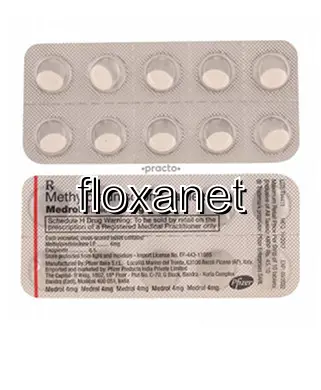| Package | Dosage | Price | Price per Dose | |
|---|---|---|---|---|
| Dosage: 4mg | ||||
| 360 pill | 4mg | €235.01 | €0.66 | |
| 270 pill | 4mg | €203.29 | €0.75 | |
| 180 pill | 4mg | €156.28 | €0.87 | |
| 120 pill | 4mg | €117.50 | €0.98 | |
| 90 pill | 4mg | €99.87 | €1.10 | |
| 60 pill | 4mg | €75.20 | €1.26 | |
| 30 pill | 4mg | €43.47 | €1.45 | |
| Dosage: 8mg | ||||
| 360 pill | 8mg | €352.53 | €0.98 | |
| 270 pill | 8mg | €298.47 | €1.10 | |
| 180 pill | 8mg | €229.14 | €1.27 | |
| 120 pill | 8mg | €175.08 | €1.46 | |
| 90 pill | 8mg | €144.54 | €1.61 | |
| 60 pill | 8mg | €108.10 | €1.80 | |
| 30 pill | 8mg | €61.10 | €2.03 | |
| Dosage: 16mg | ||||
| 270 pill | 16mg | €352.53 | €1.30 | |
| 180 pill | 16mg | €270.27 | €1.50 | |
| 120 pill | 16mg | €202.11 | €1.68 | |
| 90 pill | 16mg | €171.56 | €1.90 | |
| 60 pill | 16mg | €126.90 | €2.12 | |
| 30 pill | 16mg | €71.67 | €2.39 | |

Methylprednisolone Description
Overview of Methylprednisolone
Methylprednisolone is a synthetic corticosteroid that is widely used for its anti-inflammatory and immunosuppressive properties. It mimics the activity of naturally occurring hormones produced by the adrenal glands. This medication is often prescribed in its oral form, as well as injectable forms, to treat a variety of medical conditions. Its primary purpose is to reduce inflammation, alleviate symptoms, and suppress immune responses that may be harmful in certain diseases.
Uses and Medical Conditions
Methylprednisolone is commonly prescribed for conditions such as allergic reactions, asthma, arthritis, skin diseases, and autoimmune disorders. It is also used in the management of certain types of cancer and to prevent transplant rejection. Because of its potent anti-inflammatory effect, it can help quickly decrease swelling, redness, and other symptoms associated with inflammation. The medication is also administered in emergency settings to treat severe allergic responses or sudden asthma exacerbations.
How the Medication Works
This corticosteroid works by modulating the body's immune response. It inhibits the release of inflammatory chemicals, reduces immune cell activity, and decreases the formation of substances that cause swelling and pain. By controlling these processes, methylprednisolone helps to manage symptoms and prevent tissue damage. However, because it suppresses the immune system, it can also make users more susceptible to infections.
Potential Benefits and Effectiveness
Many users report that methylprednisolone provides rapid relief of symptoms, especially in acute conditions. Its effectiveness in controlling inflammation often leads to significant improvement in quality of life. For chronic conditions, it can serve as an essential part of the treatment plan, helping to manage flare-ups and maintain stability. However, for long-term use, careful monitoring is necessary due to possible side effects associated with extended corticosteroid therapy.
Possible Side Effects and Risks
Despite its benefits, methylprednisolone can cause a range of side effects. Common issues include increased appetite, weight gain, mood changes, difficulty sleeping, and fluid retention. Long-term use may lead to osteoporosis, adrenal suppression, high blood pressure, and increased susceptibility to infections. Some individuals may experience more serious effects such as changes in blood sugar levels, eye problems like glaucoma, or thinning of the skin. It is crucial for patients to be regularly monitored by healthcare professionals while on this medication.
Usage and Dosage
The dosage of methylprednisolone varies depending on the condition being treated, patient age, and response to the medication. It is typically prescribed at the lowest effective dose for the shortest duration necessary. It is important to follow the healthcare provider's instructions carefully to minimize risks. Patients should not stop taking the medication suddenly without medical advice, especially after long-term use, as this can lead to adrenal insufficiency.
Considerations and Precautions
Before using methylprednisolone, patients should disclose their complete medical history, including any infections, heart problems, or mental health issues. It may interact with other medications, so informing the healthcare provider about all current treatments is essential. Pregnant or breastfeeding women should discuss the risks and benefits with their doctor, as the medication can cross the placenta and be present in breast milk. Proper monitoring is necessary for those on long-term therapy to detect potential side effects early.
Conclusion
Methylprednisolone is a powerful corticosteroid with significant benefits in managing a wide range of inflammatory and autoimmune conditions. When used appropriately under medical supervision, it can greatly improve symptoms and quality of life. However, due to its potential for side effects, caution and regular monitoring are essential to ensure safe and effective treatment. It remains a valuable medication for many conditions, providing swift relief and helping control complex health issues.
